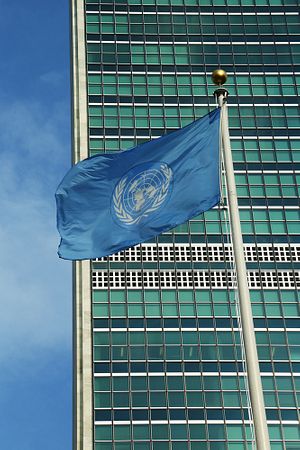Time for your weekly China links:
I already reported on China’s World Internet Conference and the accompanying push to promote Beijing’s concept of “cyber sovereignty.” But another, less appreciated, development on the cyber governance front unfolded in New York this week. A United Nations document meant to set the framework for future Internet governance contained a key word at China’s insistence: multilateral. As the New York Times’ Dan Levin explains:
Multilateral is code for states making the rules. The inclusion of the word was largely spearheaded by China, which worked to enshrine state control over the Internet in the document, said negotiators who were involved in the process.
The United States, European Union, and many civil society organization prefer the term “multistakeholder,” which translates to “a management system based on the consensus of civil society, businesses, academic institutions, engineers and governments.”
However, it wasn’t a total win for China: it was unsuccessful in pushing to remove the words “democratic” and “freedom of expression” from the final document. Beijing also pushed to a nod to cyber sovereignty – referencing the “sovereign right of states” to govern the Internet within their borders – without success.
In other news, Reuters has yet another theory for why Kim Jong-un’s favorite girl band cancelled its tour of Beijing last weekend. According to Reuters’ sources, Chinese censors objected to “anti-American” lyrics in some of the Moranbong Band’s songs. Our own Bo Zhiyue runs down the other theories for the mysterious cancellation here.
Now that the Obama administration has authorized the sale of two Perry-class frigates to Taiwan, it’s a good time to revisit J. Michael Cole’s 2014 piece on whether or not it actually makes military and fiscal sense for Taiwan to buy the decommissioned U.S. vessels.
Meanwhile, Taiwan just received seven Black Hawk helicopters from a 2010 arms deal yesterday (out of a total of 60 that will eventually be delivered). According to Taiwan’s Central New Agency, three of the new helicopters will be “put into service next March as rescue aircraft.”
The Asia Maritime Transparency Initiative has a helpful primer on the possible outcomes of the Philippines’ international arbitration case involving the South China Sea. Particularly, what will it mean if the tribunal rules that all of the Chinese-occupied features are rocks or low-tide elevations – and what if, by contrast, some of them are ruled islands entitled to a 200 nautical mile zone? The piece includes maps of which areas of the South China Sea would remain disputed under the various scenarios.
Finally, in case you missed it, the latest entry in our Diplomatic Access series is an interview with Taiwan’s top representative in the United States. Representative Lyushun Shen discusses Taiwan’s lack of international space, its relations with China and the United States, and its plan for the South China Sea.
































